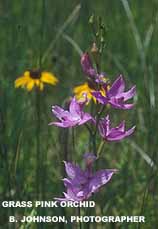Arts & Culture >
Home Sweet Home
Home Sweet Home

I thought that it would be nice to introduce you to my home in Southern Illinois.
The Cache River is located in southernmost Illinois, in a region sometimes called Little Egypt. Located at the convergence of four major physiographic regions, the river is part of the largest complex of wetlands in Illinois. the Cache river wetlands are the northernmost cypress/tupelo swamp in the United States, and provide habitat for over 50 threatened and endangered species.

The Cache River area was used as a trading crossroads by Native Americans, and has several sites of archaeological interest with its boundaries, including the Cypress Citadel site just south of Cypress, Illinois, one of only 22 such sites in the United States.

French Voyageurs gave the river its modern name, calling it "cache" which means secret or hidden place. European settlers arrived in the region in 1803. They found the soil too wet for farming, and the swamps full of mosquitoes and venomous snakes; many early settlers died of malaria. However, the Cache provided excellent hunting and fishing, and abundant timber. One settler wrote home that the Cache River Basin was "good country for men and dogs, but hard on women and oxen." Between 1810 and 1890 timber harvesting became a major industry in the Cache basin, cypress wood being sought after for its light water-resistant properties. The small towns on the edge of the swamp experienced a small boom during this period. Several sawmills and small factories sprung up to process timber for lumber, railroad ties, charcoal, and packing crates and boxes.

After most of the accessible timber was cut, local industry shifted to agriculture and a program of diversion and draining began. The landscape changed dramatically, largely due to a diversion channel that was cut to connect the Cache and the nearby Ohio River. Constructed in 1912-1915, the Post Creek Cutoff divided the Cache in two Rivers: the Upper Cache, which drains to the Ohio river and the Lower Cache which drains to the original outlet of the Mississippe river.

Since the mid-1980s, efforts have been made to restore the Cache to something more of its historic state. Once again it is returning to its wild rustic beauty, a mecca for nature lovers and game hunters. The women are still here in this wilderness, but the oxen are long gone.
posted on Mar 25, 2008 5:37 AM ()
 Comment on this article
Comment on this article
97 articles found [
Previous Article ] [
Next Article ] [
First ] [
Last ]





